BY THE SAME AUTHOR
Designing the Molecular World:
Chemistry at the Frontier
Made to Measure:
New Materials for the 21st Century
H2O:
A Biography of Water
The Self-made Tapestry:
Pattern Formation in Nature
Bright Earth:
The Invention of Colour
Stories of the Invisible:
A Guided Tour of Molecules
The Ingredients:
A Guided Tour of the Elements
Critical Mass:
How One Things Leads to Another
Elegant Solutions:
Ten Beautiful Experiments in Chemistry
The Devils Doctor:
Paracelsus and the World of Renaissance Magic and Science
Natures Patterns:
A Tapestry in Three Parts
Universe of Stone:
Chartres Cathedral and the Triumph of the Medieval Mind
The Sun and Moon Corrupted
The Music Instinct:
How Music Works and Why We Cant Do Without It
Unnatural:
The Heretical Idea of Making People
Curiosity
HOW SCIENCE BECAME INTERESTED IN EVERYTHING
Philip Ball
The University of Chicago Press
Chicago & London
PHILIP BALL worked for over twenty years as an editor for Nature, writes regularly in the scientific and popular media, and has authored many books on the interactions of the sciences, the arts, and the wider culture, including Critical Mass, The Self-Made Tapestry: Pattern Formation in Nature, H2O: A Biography of Water, Bright Earth, Universe of Stone, and The Music Instinct.
The University of Chicago Press, Chicago 60637
The University of Chicago Press, Ltd., London
2012 by Philip Ball
All rights reserved. Published 2013.
Printed in the United States of America
22 21 20 19 18 17 16 15 14 13 1 2 3 4 5
ISBN-13: 978-0-226-04579-5 (cloth)
ISBN-13: 978-0-226-04582-5 (e-book)
DOI: 10.7208/chicago/9780226045825.001.0001
LIBRARY OF CONGRESS CATALOGING-IN-PUBLICATION DATA
Ball, Philip, 1962author.
Curiosity : how science became interested in everything / Philip Ball.
pages cm
Originally published by Bodley Head, 2012.
Includes bibliographical references and index.
ISBN 978-0-226-04579-5 (cloth : alkaline paper)ISBN 978-0-226-04582-5 (e-book)
1. ScienceHistoryPopular works. 2. Curiosity. I. Title.
Q125.B297 2013
509dc23
2012048631
 This paper meets the requirements of ANSI/NISO Z39.48-1992 (Permanence of Paper).
This paper meets the requirements of ANSI/NISO Z39.48-1992 (Permanence of Paper).
Contents
Preface
While I was talking about this book with the literary scholar Mary Baine Campbell, we considered the idea that curiosity could become pathological. Isnt there something problematic about responding to an analysis of, lets say, domestic accounting during the Thirty Years War or the detailed manoeuvres of a gastric enzyme not with glazed eyes but with a breathless But thats so interesting!? Recalibration of ones curiosity threshold is a necessary preparation for most PhD students, but in the wider world mightnt there be something ill-disciplined, even improper, about a voracious curiosity that permits nothing to be too trivial or obscure?
It was a sobering thought, I suspect for the both of us, as we acknowledged what seemed to me a guilty complicity. Was there after all something in the old accusation that it is weak-willed to succumb to the wiles of curiosity? But the problem of our times and also its great good fortune is that temptation is everywhere. Not only is it now acceptable to be curious and this book is largely about how that came to be the case but it is easier than ever, because of the knee-trembling quantity of information we have at our fingertips. We no longer have to seek out this stuff in dusty vaults and ancient libraries; it sits waiting for us at our desk, humming gently, perhaps even in scanned, gorgeously browning facsimile. More, we carry it everywhere in our bags and pockets. Yes, of course this is all just so much data, amorphous and indeed meaningless unless we have some notion of how to select and organize and filter. And yes, of course it is in some ways a mere side effect of, or accompaniment to, new opportunities for turning our back on curiosity altogether and immersing ourselves in the empty immediacy of a virtual now, of chatter and gossip and a numbing profusion of choice.
But is all this, too, really so new? It has always been a complaint levelled at curiosity that it is the enemy of productivity, an unwelcome distraction from our daily duties. Meanwhile, the Enlightenments mockers of curiosity were, as well see, often not utilitarian Gradgrinds but gossipy, solipsistic wits and libertines. And a surfeit of information has always given cause for grumbling. Alexander Pope felt that the printing press, a scourge for the sins of the learned, would lead to a deluge of Authors [that] covered the land.
The relationship between access to information and curiosity about it has, I think, yet to be well explored. But it is clear that the first professors of curiosity who flourished in the century of Popes birth had to work tremendously hard to get their knowledge, and curiosity was, before profit or fame or reputation, their most significant motivation. This situation has been rightly celebrated, but rarely has it been examined or explained. Mary is one of the scholars who have begun that exploration, and as such, is one of those to whom I owe an immense debt for this book. All the more so because she kindly agreed to read the manuscript and offered insightful and important views on it. For similar acts of generosity I offered sincere thanks to Brian Ford, Michael Hunter, Neil Kenny and Catherine Wilson.
It has been my great pleasure to have published several books under the editorship of Will Sulkin at Bodley Head, who I (and many others) shall miss greatly after his retirement in 2012. Wills enthusiasm, erudition and passion about writing and ideas has been a vital source of encouragement. I am consoled to know that I will still enjoy the thoughtful and diligent editorial support of Jrg Hensgen, and of his colleagues Kay Peddle and Hannah Ross. David Milner has done another splendid job of copy-editing the text. And my good fortune to have Clare Alexander as my agent is one of those things that I always find a little astonishing. As ever, the greatest consolation, support and inspiration comes from my family, within which these days I can delight in watching curiosity bloom in its purest form.
Philip Ball
January 2012
Old Questions
, the same is a wonder and full of wonder, if only we examine it for a little.
Giovanni Dondi (c.1382)
is not to stop questioning... Never lose a holy curiosity.
Albert Einstein (1955)
The Large Hadron Collider is a discovery machine. Its research program has the potential to change our view of the universe profoundly, continuing a tradition of human curiosity thats as old as mankind itself. This is Robert Aymar, former director general of CERN, the European centre for particle physics in Geneva, explaining why the collider has been constructed.
The LHC is the worlds most powerful particle accelerator. It uses electromagnetic fields to accelerate protons to 99.999999 per cent of the speed of light, so fast that they travel around the entire 27-km circumference of the tunnels in less than a ten-thousandth of a second. Then the protons are smashed into one another in collisions energetic enough to recreate the conditions in the first instants of the Big Bang from which the universe began. The hope is that this will spawn particles never before seen, which will help us to understand some deep questions about the nature of matter, such as why certain types of particle have mass.
At a cost of $6 billion and twenty-five years in the planning, the LHC is as big as Big Science gets. Why go to all this effort and expense? Aymar appeals to the role of human curiosity. He implies that this is just the latest development in an unbroken history of curiosity about nature that stretches back to our own origins. It is, he says, an extension of what we have always done.
Next page


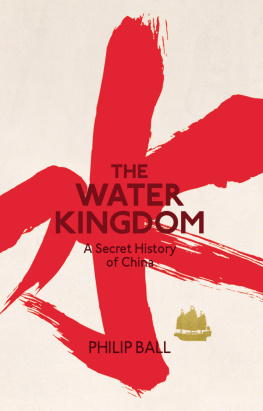
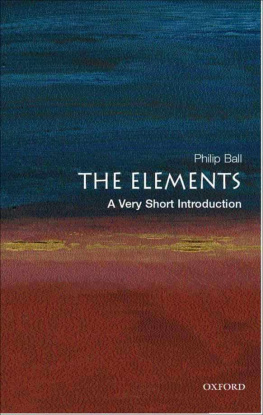
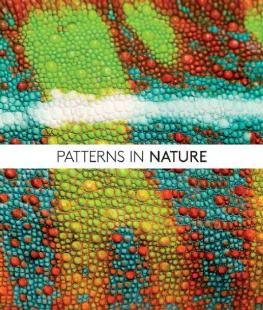
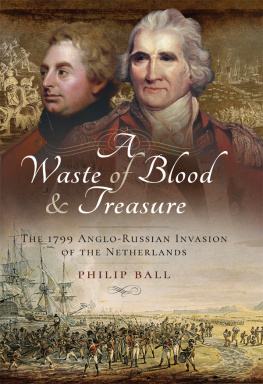
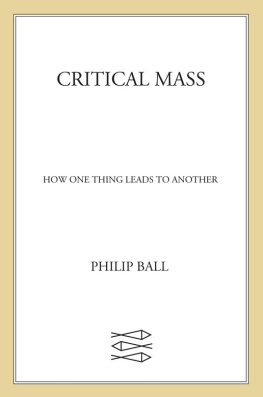
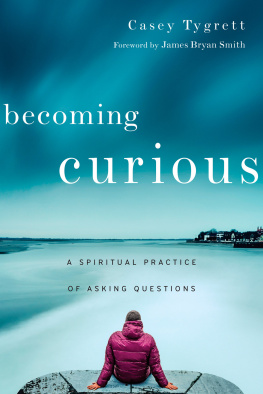
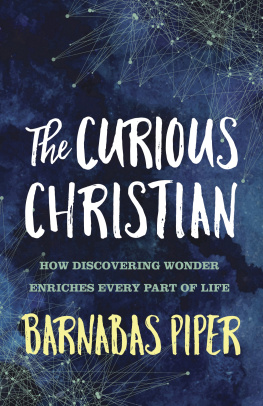
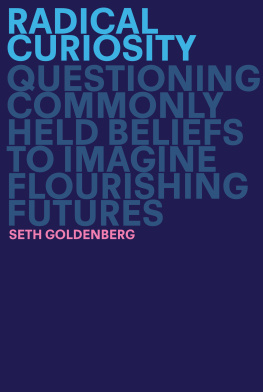
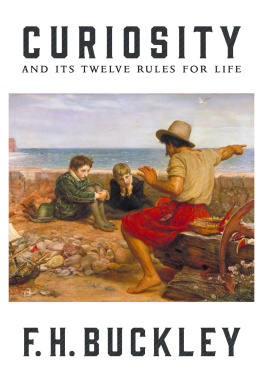
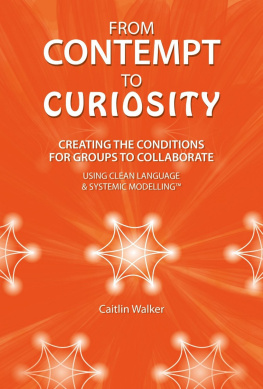
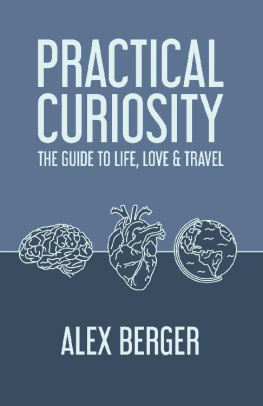
 This paper meets the requirements of ANSI/NISO Z39.48-1992 (Permanence of Paper).
This paper meets the requirements of ANSI/NISO Z39.48-1992 (Permanence of Paper).